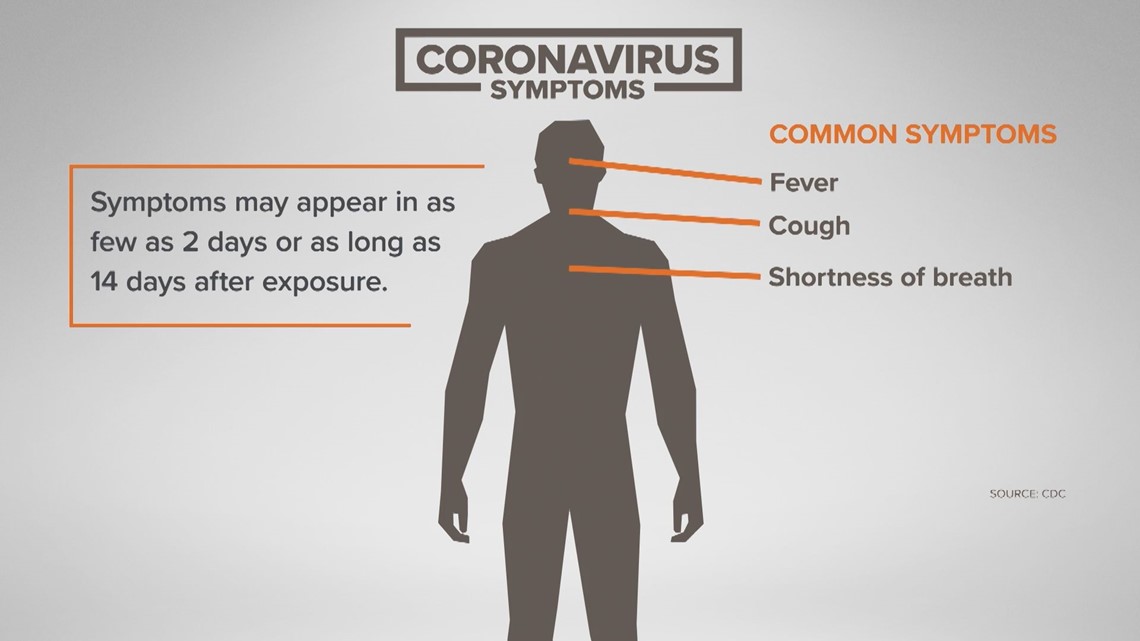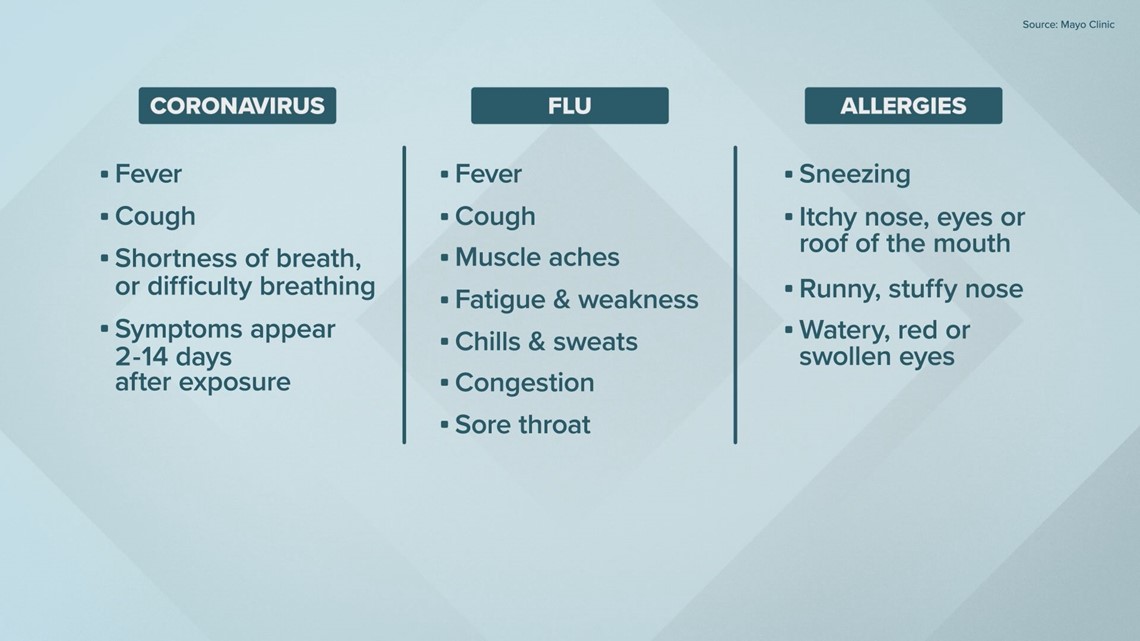DES MOINES, Iowa —
WHAT'S THE UPDATE ON COVID-19 IN IOWA?
The Iowa Department of Public Health confirmed that 17 Iowans have tested positive for COVID-19, while 83 have tested negative.
15 out of 17 of those presumptive positive cases involve an Egyptian cruise. All of them are from Johnson County. Their ages range from 41 to 80 years old.
In total, 21 Iowans were on that cruise. The IDPH found that these individuals have had limited contact since their return to Iowa and have avoided large gatherings.
One other person with COVID-19 in Iowa is a woman from Pottawattamie County. She's between the age of 41 and 60 years old and recently traveled to California.
The last person to be infected is from Harrison County.
RELATED: Iowa Dept. of Public Health: 16 coronavirus cases in the state after two more confirmed Thursday
BIG EVENTS, UNIVERSITIES AND COLLEGES MAKE CHANGES
In an abundance of caution, all three public universities announced they will be moving to online classes for the two weeks following spring break. Smaller colleges have also moved to do the same.
Lots of events are being delayed or straight-up canceled because of the virus.
RELATED: 'I was very shocked': Special Olympics athlete reacts to tournament being canceled over coronavirus
WHERE ELSE HAS COVID-19 SPREAD TO?
COVID-19 cases have been reported all around the world.
A project from the Johns Hopkins Center for Systems Science and Engineering lets you track COVID-19 cases via interactive map. It's best viewed on a desktop. Click/tap here for a larger view from Johns Hopkins University.
The Associated Press has this interactive map of the United States. It's based off of data collected by Johns Hopkins.
HERE ARE THE SYMPTOMS OF CORONAVIRUS
Coronavirus patients have reported mild to severe respiratory illnesses with symptoms of cough, fever, and shortness of breath. That's according to the Centers for Disease Control and Prevention.
The CDC said these symptoms can appear anywhere between two days or 14 days after exposure.




RELATED: What are coronavirus symptoms? How are they different from the flu? Your questions answered
HOW DOES THE VIRUS SPREAD?
The CDC said the virus is thought to spread mainly from person-to-person, specifically between people in close contact with one another (within about six feet) through respiratory droplets produced by coughing or sneezing. The CDC said that these droplets could be inhaled or end up in the mouths of people nearby.
People infected with COVID-19 are thought to be the most contagious when they are the sickest, the CDC adds. Some spread might be possible before people show symptoms. There have been some reports of this happening, according to the CDC, however, this is not thought to be the main way the virus spreads.
"It may be possible that a person can get COVID-19 by touching a surface or object that has the virus on it and then touching their own mouth, nose, or possibly their eyes, but this is not thought to be the main way the virus spreads," the CDC said.
HOW IS COVID-19 TREATED?
According to the CDC, at this time "there is no specific antiviral treatment recommended for COVID-19. People with COVID-19 should receive supportive care to help relieve symptoms."
The CDC advises people who think they've been exposed to contact their health care provider as soon as possible.
HOW YOU CAN PREVENT THE SPREAD OF COVID-19
The CDC said there is currently no vaccine to prevent COVID-19, however, the best way to prevent it is to avoid being exposed to it.
The CDC recommends the following lifestyle tips to avoid the spread of any type of respiratory virus:
• Avoid close contact with people who are sick.
• Avoid touching your eyes, nose, and mouth with unwashed hands.
• Wash your hands often with soap and water for at least 20 seconds. Use an alcohol-based hand sanitizer that contains at least 60% alcohol if soap and water are not available.
• Clean and disinfect frequently touched objects and surfaces using a regular household cleaning spray or wipe.
WHAT YOU SHOULD DO IF YOU HAVE SYMPTOMS OF COVID-19
The CDC said to take these steps to avoid spreading a respiratory illness:
• Stay home when you are sick, except to get medical care.
• Call ahead before visiting your doctor, so the office can take steps to keep other people from being exposed.
• Separate yourself from other people and animals in your home.
• Cover your cough or sneeze with a tissue, then throw the tissue in the trash.
• Clean and disinfect frequently touched objects and surfaces.
• Avoid sharing personal household items like cups, towels or bedding.
HOW DOCTORS TEST FOR THE CORONAVIRUS
According to CDC guidance for health professionals published in mid-February, doctors are advised to do a swab of a patient's nose and throat, as well as collecting a sputum sample. The sample is then sent for lab testing.

